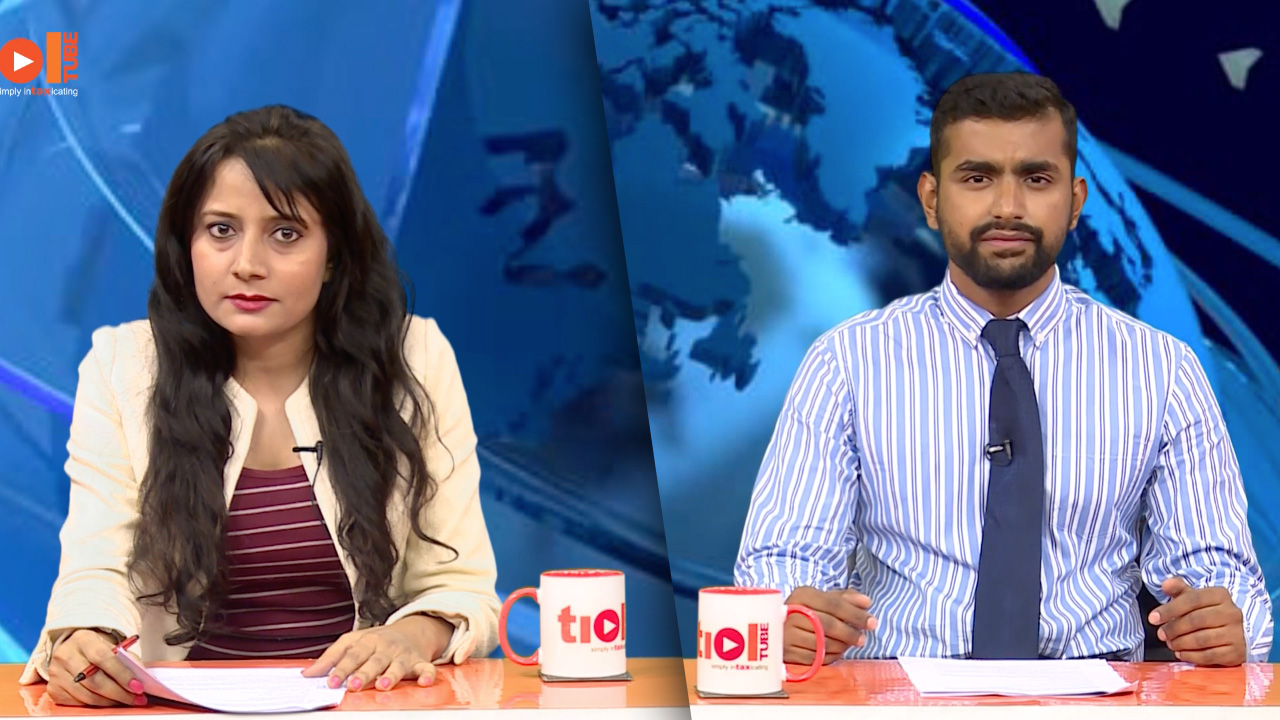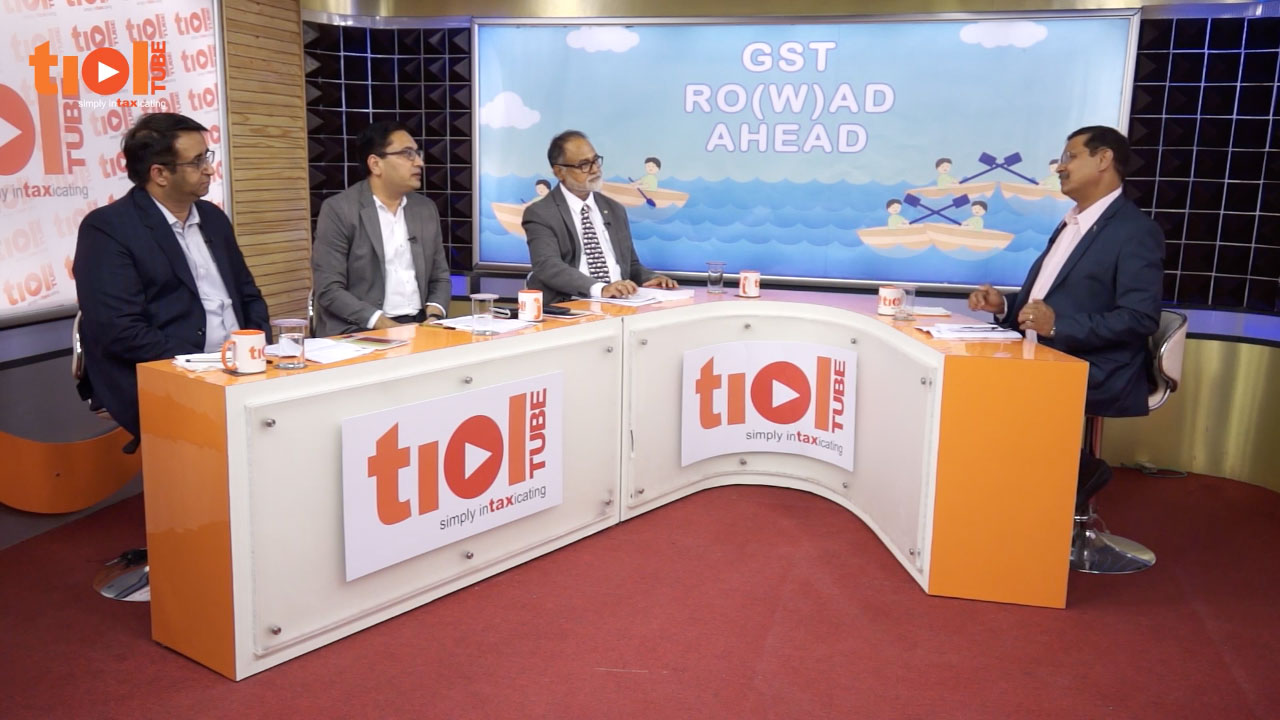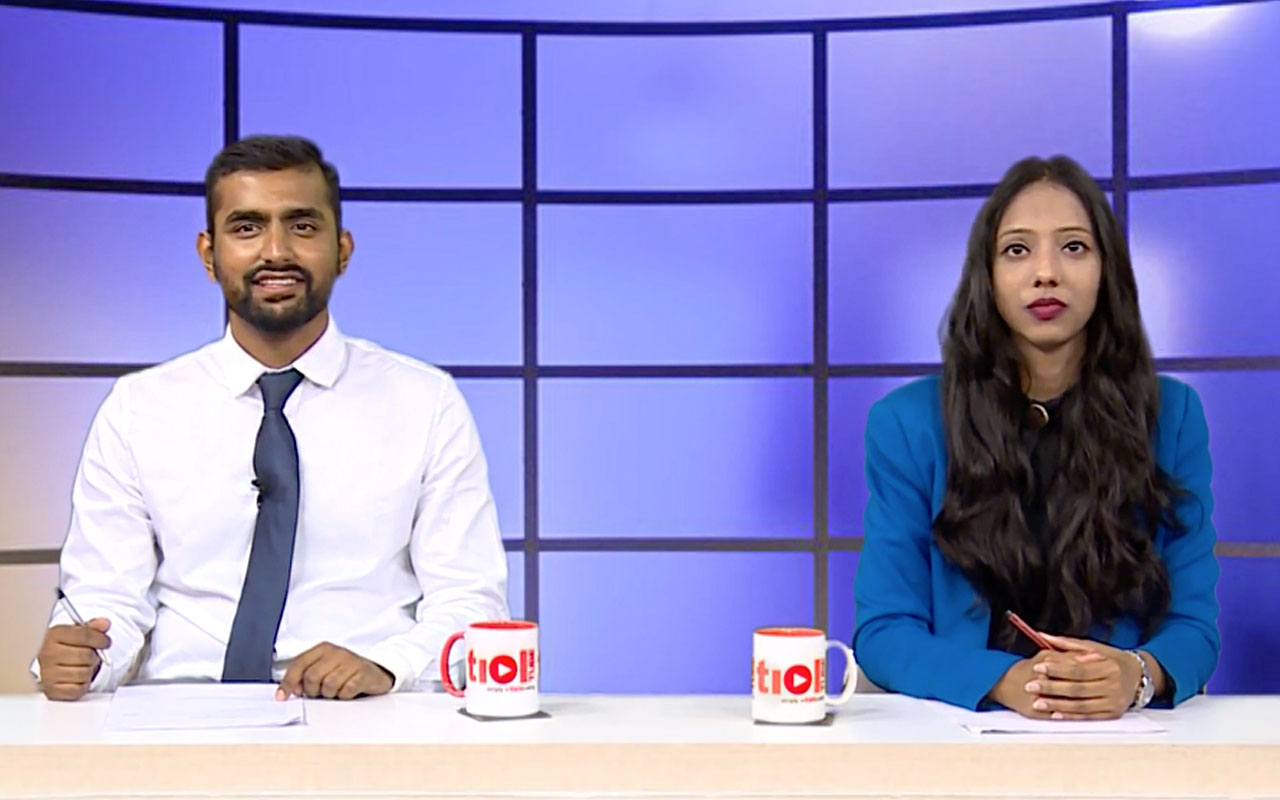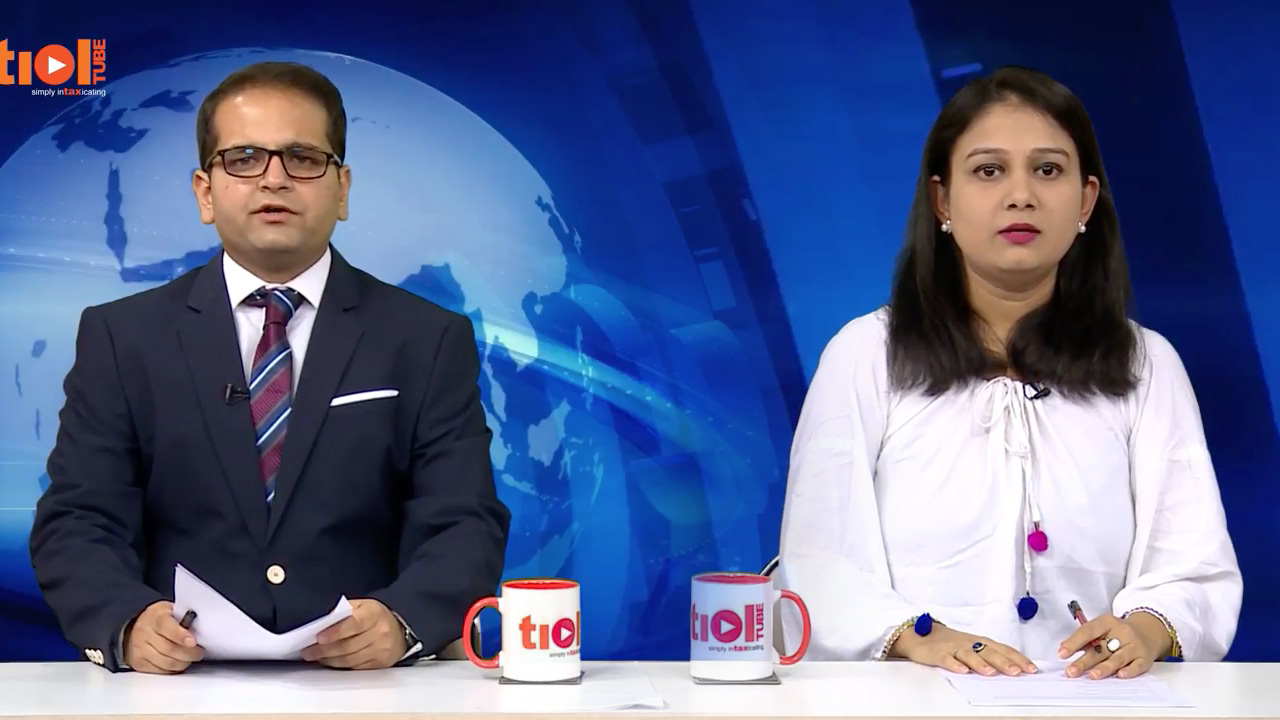SERVICE TAX
2018-TIOL-3146-CESTAT-MUM + Case Story
Rishiroop Polymers Pvt Ltd Vs CCG ST
ST - Stand taken by department sounds contradictory - once it is acknowledged that appellant has rendered both taxable and exempted services from the unit which is unregistered and sought reversal of proportionate CENVAT credit u/r 6(3) of CCR, 2004, denial of credit on the Input service of Renting of Immovable Property cannot be sustained - credit of service tax paid on Renting of Immovable Property Service cannot be denied merely for the reason that separate service tax registration was not obtained for the additional unit taken by the registered assessee on rent - impugned order is set aside and appeal is allowed: CESTAT [para 5]
- Appeal allowed
: MUMBAI CESTAT
2018-TIOL-3139-CESTAT-ALL CCE & ST Vs Balrampur Chini Mills
ST - The assessee is registered under head of transport of goods by road and also under banking & other financial services - The assessee obtained 'External Commercial Borrowings' in terms of approval granted by Govt for purchasing capital goods for use at its manufacturing plant - The assessee obtained an ECB from an entity located in the USA - The Department alleged that since the entity has no office in India, the assessee was liable to pay service tax on such service under reverse charge - Duty demand was raised & penalty was imposed - Such demands were set aside by the Commr.(A) who accepted the assessee's contentions that International Finance Corporations were exempt from tax as per provisions of the International Finance Corporation (Status, Immunities and Privileges) Act, 1958.
Held: The Revenue insisted that the assessee was liable to pay duty under reverse charge - As such though there is no obligation on service recipient to pay the tax but in case service is received from a foreign entity, not having any office in India, the service tax liability gets shifted to the service recipient on reverse charge basis - But if there is no liability of service provider to pay any tax, then no question of shifting obligation on the service recipient will arise - As the entity located abroad is not liable to pay tax, no liabilit ycan be transferred onto the assessee - Hence the O-i-A warrants is correct: CESTAT (Para 2-6,8)
- Appeal dismissed: ALLAHABAD CESTAT
2018-TIOL-3138-CESTAT-ALL
Cabana Estates Pvt Ltd Vs CCE
ST - The assessee, a club, provides services of Health Club, Mandap Keeper Service, Management, Maintenance & Repair, Beauty Parlor, Event Management and Catering to its members - It took some property on lease which it gave out on rent - During period of dispute, renting of property for residential purposes was not taxable - However the same was covered under 'exempted service' u/r 2(e) of CCR 2004 - The Department noted that the assessee availed credit on common input service which had been used to provide both taxable and exempted services & that the assessee did not maintain separate accounts - Hence the Department invoked Rule 6(1)(3) of CCR 2004 - Duty demand was raised with interest & penalty u/r 15(3) of the CCR r/w/s 78 of the Finance Act 1994.
Held - The assessee reversed credit availed on common input services - Considering the decision of the Karnataka High Court in CCE, Mangalore vs. Kudremukh Iron & Steel Company Ltd. wherein it was held that the reversal of credit on exempted services would amount to a situation as if no credit had been availed - Hence no question of payment of any amounts on final exempted service would arise - The assessee reversed the entire input credit regardless of use in taxable or exempted services - Hence the matter warrants remand to calculate the amount of credit which is to be reversed - The penalty is set aside as there was a bona fide issue in interpretation of legal provisions: CESTAT (Para 1,6,7,8)
- Appeal partly allowed: ALLAHABAD CESTAT
CENTRAL EXCISE 2018-TIOL-2182-HC-CHHATTISGARH-CX
CCE, C & ST Vs Jindal Steel and Power Ltd
CX - The assessee had availed input service tax credit attributable to generation of electricity, which is used captively in the manufacture of final product and a portion is wheeled out/sold by the assessee as merchant power - Revenue objected to taking of Cenvat Credit by assessee in terms of Rule 6 (3A) of CCR, 2004 - Following which the assessee reversed Cenvat Credit - The Department again objected to taking of suo motu re-credit and SCN issued against the assessee was adjudicated - The Tribunal has set aside the order imposing penalty, however, it maintained the order of Commissioner to the extent of disallowance of Cenvat Credit - While the Department is aggrieved by setting aside the order of penalty, the assessee is aggrieved by disallowance of Cenvat Credit and fastening of liability towards interest - The assessee has failed to demonstrate as to on which particular item or goods the Cenvat credit has been availed - Particularly, it could not be pointed out as to why the Cenvat credit reversed earlier was restored by the assessee when the earlier SCN is still pending adjudication - The Tribunal has rightly set aside the penalty imposed on assessee - The question of law framed by this Court is to the effect as to whether the action of the assessee in taking re-credit of CENVAT amount after the Revenue had already rejected his claim can be termed as a fraudulent or other illegal activity done with an intention of defrauding the Government Officials - The assessee has not taken the re-credit of its own, but the same was done on the basis of its Auditor's objection - It amounted to an account entry reversal without there being any revenue impact, as the issue concerning Cenvat credit on the amount is already under adjudication pursuant to the first SCN - There appears no mala fide or fraudulent act on the part of assessee, more so, when the first proceedings are pending: HC
- Appeals dismissed: CHHATTISGARH HIHG COURT
2018-TIOL-3137-CESTAT-MUM
Blue Cross Laboratories Vs CCE
CX - Physician Samples - Valuation - Section 4 of the CEA, 1944 - Physician samples cleared free of cost for distribution amongst doctors - appellant clearing goods on the basis of cost plus 10% of the margin, however, Revenue is seeking to demand duty on the value arrived at on pro rata basis depending on the assessable value arrived at for clearance of the same medicines on MRP basis - appeal to CESTAT.
Held: Other than the packing of the goods, the goods are identical in nature in respect of quality - even the packing is similar in many cases although the physician samples would contain an indication to that effect and would not contain the MRP - Bombay High Court in the case of Indian Drug Manufacturer's Association - 2006-TIOL-292-HC-MUM-CX has clearly held that Rule 4 of the Valuation Rules can be applied to the instant situation - In the instant case, it is seen that the physician samples are not sold by the appellants but are cleared free of cost - It is not their case that any of the rules 4 to 10 of the Valuation Rules, 2000 are directly applicable - since no transaction value is available, the assessment cannot be done u/s 4(1)(a) but has to be done u/s 4(1)(b) of the CEA, 1944 - assessment also cannot be done u/s 4A as the said goods are not marked with MRP - in the instant case, it is seen that identical goods different only in respect of size of packing and marking of MRP are being assessed u/s 4A of the CEA, 1944 and such comparable value after suitable adjustments can be adopted for the purpose of assessment of physician samples in terms of rule 4 of Valuation Rules, 2000 - such recourse does not amount to application of section 4A of the CEA to physician samples but is only a measure of taking an alternate value of similar goods for the purpose of Valuation Rules, 2000 in terms of rule 11 thereof - no merit in the appeal, hence dismissed: CESTAT [para4, 4.1 to 4.5, 5]
- Appeal dismissed: MUMBAI CESTAT
2018-TIOL-3136-CESTAT-BANG
MVR Chemicals and Oils Vs CCE
CX - The assessee was engaged in the activity of 'Dehydration' of Crude oil - They vide their letter dated 02.03.2007 have intimated to the Department that they were intending to procure Commingled Crude Oil and after exposing the same to certain process such as Dehydration, they would clear the same to their customers; in this process there was no change in the characteristics of the raw materials and product i.e., Commingled Crude Oil and Petroleum oil respectively - It appears that the process undertaken is only Dehydration and not akin to Distillation - In the said process, only water is removed from the Crude oil and is collected and re-channeled - As normally understood, Distillation is the technique of heating a liquid to create vapour which is collected when cooled separate from the original liquid - It is based on the different boiling point or volatility and values of components, the technique may be used to separate components of a mixture or to add in purification - As per the report given by Chartered Engineer after visiting the Plant on 23.03.2007 that the Plant requires modifications for processing petroleum per c.c. however this Plant can be used for Dehydration process - Therefore, it can be inferred that the process undertaken by assessee is only Dehydration.
It is is clear that for the products to fall under 27.10 they have to undergo the processes which are other than those listed under 27.09 - The processes undertaken by assessee are not those beyond the cases listed therein - Therefore, the impugned product is rightly classifiable under CTH 27090000 - It is also seen that Audit Team of the Department has visited the factory from 20.08.2007 to 23.08.2007 and have issued an audit report wherein they have not raised any contentions regarding the impugned product of the process - Under the circumstances, it is not open for the Department to issue a SCN in April 2008 to recover the duty for the period from 2006 to 2008: CESTAT
- Appeal allowed: BANGALORE CESTAT
CUSTOMS
2018-TIOL-2181-HC-KOL-CUS Impex Metal and Ferro Alloys Ltd Vs UoI
Cus - The petitioner imported High Carbon Ferro Manganese Fines on payment of customs duty from South Africa and thereafter, exported the same to an entity in South Korea - They also claimed drawback under Section 74 of Customs Act, 1962 - The claim was rejected on the ground that the identity of re-exported High Carbon Ferro Manganese Fines could not be established with the imported High Carbon Ferro Manganese Fines on the basis of the documents submitted at the time of the import and export - The impugned order deals with the order of adjudicating authority - It finds that, the imported High Carbon Ferro Manganese Fines contained 72.09% Manganese as the main ingredient while that of the shipping bills for the export was declared as 68% by the petitioner itself - According to petitioner, the export document shows that, the Manganese content is 68% minimum - With respect, the same itself will indicate that, the quality was not that, as imported - Moreover, the test reports which were sought to be relied upon at the behest of the petitioner before adjudicating authority were disbelieved - The reasons for disbelieving the same have been stated by authorities - In such circumstances, court is not in a position to return a finding that the impugned order suffers from the vice of perversity: HC
- Writ petition dismissed: CALCUTTA HIGH COURT
2018-TIOL-3135-CESTAT-KOL CC Vs Opel Exports
Cus - The importer had imported consignments by various bills of entry and the consignment was investigated by DRI and which is still continuing - The assessee through a letter requested the assessing officer for provisional release of goods, who has denied the provisional release, purportedly under the Order of Commissioner of Customs (Port) - On appeal, Commissioner (A) through his reasoned order has directed the adjudicating authority for grant of provisional release as per Board Circular after securing the Revenue's interest - Tribunal do not agree with the view of Revenue that the imported goods become prohibited on account of IEC code lending under Section lll(d) of Customs Act, 1962 and thus provisional release is not be permitted in terms of para (2) of CBEC Circular 35/2017-Cus - Commissioner (A) has held that the appeal is valid as the Adjudicating Authority is Deputy Commissioner in this case - In this connection it is also to be mentioned here that under Section 2(34) of the Customs Act, 1962 read with Notfn 40/2012-Cus (NT) the proper officer of Customs in various sections of the Act has been defined - Under Section 17/18 of Customs Act which deals with assessment of bills of entry filed under Section 46 of the Act, Deputy/Assistant Commissioner, shall be the proper officer - This Tribunal say so after fully being conscious of the provisions as contained in Section 5(2) of Customs Act, 1962 which empowers any Customs Officers to exercise power which is vested with the officer subordinate to him after following due procedure prescribed by CBEC - No such order has been produced before Tribunal as well - Therefore, Tribunal agree with the observation of Commissioner (A) regarding Deputy Commissioner being proper officer - Accordingly, stay applications filed by Revenue merits no consideration in these cases and the same are thus rejected: CESTAT
- Appeals rejected: KOLKATA CESTAT |










